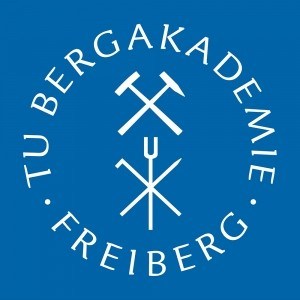Photos of university / #uni_bremen
Environmental Physics — Atmosphere, Ocean, Land, Climate (PEP) is an interdisciplinary master's degree program offered by the University of Bremen designed to prepare students for understanding and analyzing the complex interactions within the Earth's environmental systems. This program combines physics, environmental sciences, and climate research to provide a comprehensive education on the processes governing the atmosphere, oceans, land surfaces, and climate dynamics. Students will gain advanced knowledge of physical principles and modeling techniques relevant to environmental phenomena, enabling them to address current challenges such as climate change, environmental pollution, and resource management. The curriculum includes courses on atmospheric physics, oceanography, land surface processes, climate modeling, remote sensing, and data analysis. Emphasis is placed on practical skills, including laboratory work, field measurements, and the use of satellite data and computer simulations. The program promotes an interdisciplinary approach, encouraging collaboration across geographical and scientific boundaries to develop integrated solutions for environmental problems. Students have opportunities to participate in research projects, internships, and field trips, gaining hands-on experience and fostering critical thinking skills. The program prepares graduates for careers in environmental research, climate consulting, policy advising, and sustainable development initiatives. Instruction is conducted in English, attracting international students and fostering a global perspective on environmental issues. The University of Bremen's research environment, equipped with state-of-the-art laboratories and collaborative networks, supports students' academic and professional development. Upon completing the program, students will be equipped to contribute actively to scientific advancements and practical solutions in environmental physics and climate science. This master's degree aims to equip future experts with the theoretical knowledge, practical skills, and interdisciplinary mindset necessary to address the pressing environmental challenges of our time.
Educational organisation
In the first year of study (first and second semesters), students attend lectures in Basics in Environmental Sciences, Theoretical Basics, and Experimental Techniques (including lab work). In the second year of study, students attend lectures in Advanced Environmental Physics and start their research on Environmental Physics for their Master's thesis.The schedule contains mandatory lectures and special topic lectures you can choose from.
Study abroad unit(s)
Study abroad units are not required, but possible while working on the Master's thesis.Participation in the Sino-German Initiative on Marine Sciences (Double Master's Degree) requires one year of study at the Ocean University of China in Qingdao, People's Republic of China.
Internships
Lab work (internship) is integrated into the programme.Forms of assessment
Students must pass written exams in all mandatory courses and oral exams in all chosen special topics as well as in presentation and measurement techniques. In the last (fourth) semester, students prepare their Master's thesis and present it at the institute's seminar.Course objectives
After successfully completing the Master's programme, students can continue their research in a PhD programme at the IUP or any other institution elsewhere. They may also choose to work in companies dealing with environmental topics or in government departments.Language requirements
English proficiency at level C1Students can proven their level of English proficiency via the TOEFL (minimum score 90 iBT, 550 PBT, 213 CBT), the IELTS (Band 6.5), or another adequate certificate.
Academic requirements
Requirements for students from Germany and other EU countries:- an above-average BSc (three- to four-year course) or equivalent*
- two letters of reference, not older than two years
- an above-average BSc (three- to four-year course) or equivalent*
- two letters of reference, not older than two years
*The subject of the BSc should be physics, physical oceanography, geophysics, physical engineering, meteorology, geology, applied physics or - in some special cases - one of the related fields of natural science, provided it includes a substantial portion of advanced physics and mathematics (in these cases, a GRE subject test may be required by the admission board).
We expect our students to strive for excellence in their subject. We offer training from excellent researchers and expect applicants to work hard to reach their personal goals.
Enrolment fees
Enrolment and semester fee: approx. 280 EUR, including the ticket for the public transport system in Bremen and the region for six months. The fee has to be paid each semester.Costs of living
Living expenses in Germany may be higher than in other countries. It is estimated that students in Bremen will require approx. 700 EUR per month to cover the costs of living and study.These essential costs include:
- accommodation: 250 EUR per month on average (deposit: one to two months' rent, refunded upon expiration of the contract if there is no cause for complaint)
- medical insurance (compulsory): approx. 80 EUR per month
- lunch in the refectory: from 1.35 - 2.35 EUR per meal
- other costs (food, books, supplies, travel, clothes, sports/leisure, etc.): vary from person to person, but unlikely to be less than 250 EUR per month
Job opportunities
In the first semester, our programme is very challenging and working is not advised.Students can work at the university if their personal qualifications fit an available position open to students. Most students can find a job outside of the university, but in this case, basic knowledge of the German language would be helpful.
Students in the second study year can obtain a small contract supporting research in the research group in which they are doing their Master's thesis.
Funding opportunities within the university
The University of Bremen takes part in the government programme "Deutschlandstipendium". Currently, the university is looking for more sponsors to finance the programme. Upon successful application, excellent students are granted a scholarship of 300 EUR/month for a duration of one year.http://www.uni-bremen.de/en/university/sponsors-partners/deutschlandstipendium-program.html
Arrival support
After admission, we will provide you with further information on how to proceed.A student tutor will contact you before your arrival in Bremen. He/she may pick you up at the airport or railway station and bring you to your first accommodation. The tutor will support you with all necessary formalities such as immigration procedures, enrolment, and compulsory health insurance.
Services and support for international students
A student tutor will help you when you first arrive in Bremen; he/she will be your "first friend" and will put you in touch with other students. During the first semester, you will meet with your student tutor several times to discuss current issues regarding the study programme, examinations, and all issues relating to the institute or the university.From the very beginning, you will be assigned an academic mentor with whom you can discuss everything regarding your studies and, if you so wish, your future career.
Accommodation
Students can find accommodation in student residences run by the Student Service Office ("Studentenwerk"). These residences are located near the university, most of them within walking distance. Once an application form has been received, the "Studentenwerk" can arrange accommodation for the duration of the study programme. The university student residences boast modern student living facilities. The rooms and apartments all have cooking facilities and bathrooms and some offer a free high-speed Internet connection. There are single and shared flats for up to eight people. Student bars near the residences promote a vibrant student life and international flair. The rent for these rooms ranges from 190 EUR (in very few cases) to 290 EUR.See: http://www.stw-bremen.de/
Most students do not live in these residences, but instead find a room or flat on the private market. The price range is similar to that for the dormitories, but may be slightly higher.







